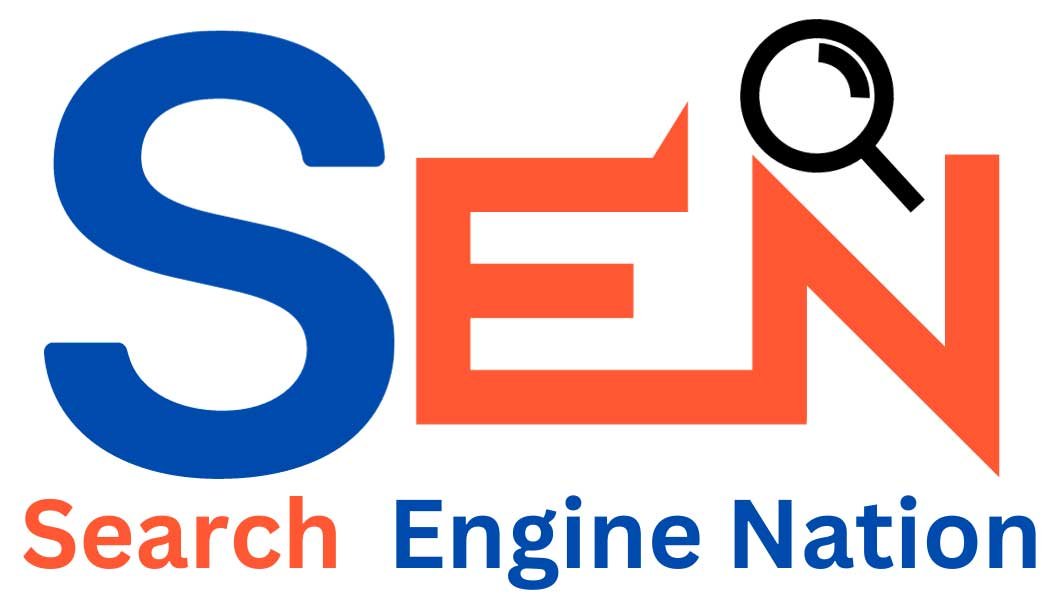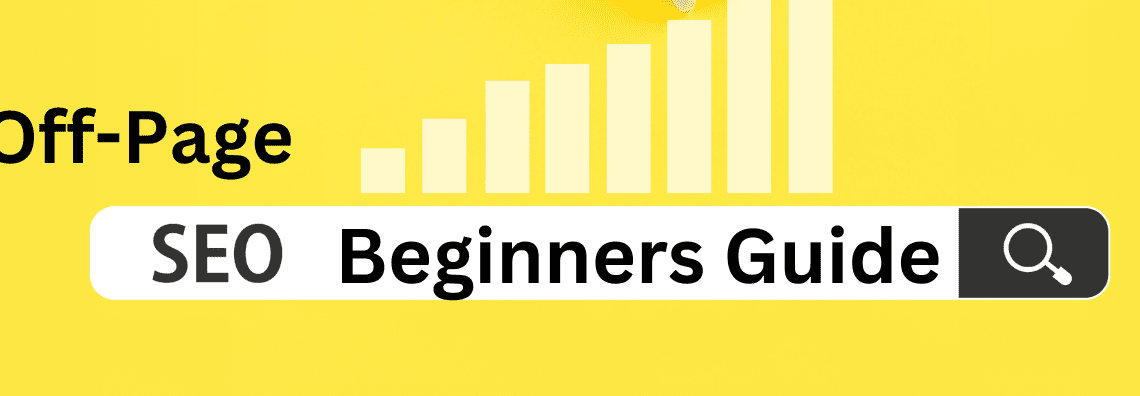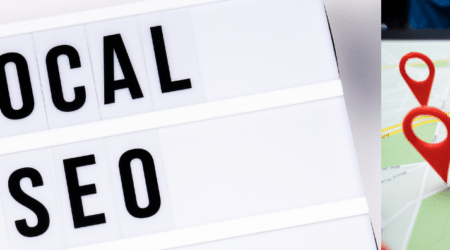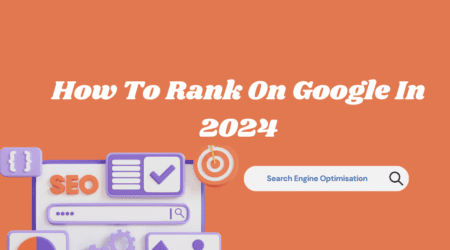What Is Off-Page SEO?
Roshan Rajput2024-01-21T05:28:05+00:00In the world of search engine optimization (SEO), there are two main categories: on-page SEO and off-page SEO.
While on-page SEO focuses on optimizing elements within your website, off-page SEO refers to the actions taken outside of your website to improve your search engine rankings.
Off-page SEO plays a crucial role in determining how well your website ranks in search engine results pages (SERPs) and Technical SEO.
Technical SEO is all about improving a website’s technical aspects to increase its pages’ ranking in the search engines.
Why Is Off-Page Seo Important?
One of the primary reasons off-page SEO is important is because it helps search engines understand the reputation, authority, and relevance of your website. When other reputable websites link to your site, search engines view it as a vote of confidence. This can increase your website’s credibility and improve your rankings in search results.
Additionally, off-page SEO can help drive more organic traffic to your website. When your website is mentioned, shared, or linked to on other platforms, it exposes your content to a wider audience. This increased visibility can lead to more website visits, conversions, and business opportunities.
Furthermore, off-page SEO can have a significant impact on your website’s online reputation. Positive reviews, social media mentions, and brand mentions on authoritative websites can all contribute to building a strong online presence and establishing your brand as a trusted authority in your industry.
10 Off-Page SEO Techniques That Work
While there are numerous off-page SEO techniques, here are 10 that have proven to be effective:
- Content Marketing: Creating and promoting high-quality, valuable content is one of the most effective off-page SEO techniques. By creating engaging blog posts, articles, videos, and infographics, you can attract natural backlinks and social media shares, increasing your website’s visibility and authority.
- Social Media Marketing: Utilizing social media platforms such as Facebook, Twitter, Instagram, and LinkedIn can help you reach a wider audience and drive traffic to your website. Engage with your followers, share your content, and encourage social sharing to boost your off-page SEO efforts.
- Influencer Outreach: Collaborating with influencers in your industry can be a powerful way to increase your website’s visibility and gain valuable backlinks. Reach out to influencers and offer them valuable content or collaborations that benefit both parties.
- Guest Blogging: Writing guest posts for other reputable blogs and websites can help you reach a new audience and build backlinks to your website. Ensure that your guest posts are high-quality and provide value to the readers.
- Online Reputation Management: Monitor and manage your online reputation by responding to reviews, addressing customer concerns, and actively engaging with your audience. A positive online reputation can improve your website’s credibility and attract more organic traffic.
- Local SEO: If your business has a physical location, optimizing your website for local SEO is crucial. Claim your business listings on Google My Business, Bing Places, and other local directories. Encourage customers to leave reviews and include local keywords in your website’s content.
- Social Bookmarking: Submitting your website’s content to social bookmarking sites like Reddit, StumbleUpon, and Digg can help increase its visibility and attract more traffic. Be sure to engage with the community and share valuable content, rather than solely self-promoting.
- Link Building: Building high-quality backlinks from authoritative websites is a fundamental off-page SEO technique. Reach out to relevant websites and offer them valuable content or resources that they can link to. Additionally, ensure that your website’s internal linking structure is optimized to improve crawlability and user experience.
- Online Directories: Submitting your website to online directories can help improve its visibility and increase the chances of attracting organic traffic. Focus on reputable directories that are relevant to your industry or location.
- Brand Mentions: Monitoring and engaging with brand mentions across the web can help you build brand awareness and attract natural backlinks. Set up Google Alerts or use social listening tools to stay informed about whenever your brand is mentioned.
Local SEO Strategies
Local SEO is a crucial aspect of off-page SEO, especially for businesses with physical locations. Here are some strategies to optimize your website for local search:
- Optimize Google My Business: Claim and optimize your Google My Business listing with accurate and up-to-date information. Add relevant categories, contact details, opening hours, and high-quality photos. Encourage customers to leave reviews.
- Local Keyword Optimization: Incorporate local keywords in your website’s content, meta tags, and headings. This helps search engines understand the geographical relevance of your website.
- Citations and NAP Consistency: Ensure that your business name, address, and phone number (NAP) are consistent across all online directories and platforms. This consistency helps search engines validate your business’s information and improve your local search rankings.
- Localized Content: Create location-specific content that caters to the needs and interests of your local audience. This could include blog posts, case studies, or testimonials that showcase your expertise in the local market.
Local Link Building: Seek opportunities to earn backlinks from local websites, such as local business directories, chambers of commerce, or local news websites. Engage in community events and sponsorships to increase your chances of local link acquisition.
Link Building Strategies
Link building is a critical component of off-page SEO. Here are some effective link building strategies:
- Guest Posting: Reach out to authoritative blogs in your industry and offer to write guest posts. Ensure that your guest posts provide value to the readers and include a relevant link back to your website.
- Broken Link Building: Find websites in your industry that have broken links and offer them a suitable replacement link from your own website. This approach helps both parties by improving the website’s user experience and providing a valuable backlink.
- Infographic Outreach: Create compelling infographics related to your industry and reach out to relevant websites to offer them the opportunity to embed your infographic on their site. Infographics are highly shareable and often attract natural backlinks.
- Resource Page Link Building: Identify websites that have resource pages related to your industry. Reach out to the website owners and suggest adding your website as a valuable resource. This can help you gain high-quality backlinks from authoritative websites.
- Ego Baiting: Write content or create resources that mention influential people in your industry. Reach out to these individuals and let them know they have been featured, increasing the chances of them sharing your content and linking back to your website.
In conclusion, off-page SEO is vital to any comprehensive SEO strategy. You can improve your website’s visibility, credibility, and organic traffic by implementing effective off-page techniques. Remember to focus on creating valuable content, building quality backlinks, and engaging with your audience to maximize the benefits of off-page SEO.
Want to boost your website’s search engine rankings and increase organic traffic?
Contact Digital marketing agency today for a personalized off-page SEO strategy tailored to your business goals.
Thanks for Reading












